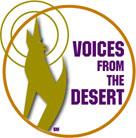Date: Wednesday, December 15, 2021
Time: 3:00 to 4:30 p.m. (EST)
For years, parties and courts have lamented the use of boilerplate discovery that provides only a vague picture of information being requested or produced. After the Rules Committee targeted the problem of boilerplate objections in the 2015 Amendments to the Federal Rules of Civil Procedure, those amendments became the focus of court opinions and industry guidance, including The Sedona Conference Federal Rule of Civil Procedure 34(b)(2) Primer: Practice Pointers for Responding to Discovery Requests, published in 2018. The 34(b)(2) Primer focused on guidance for preparing discovery responses.
The focus on nonspecific objections also shed light on an opposing problem: Requests lacking in precision. The Sedona Conference Primer on Crafting eDiscovery Requests with “Reasonable Particularity” provides practitioners with thoughtful guidance on crafting relevant and proportional discovery requests that describe the information sought with “reasonable particularity.” The Primer is now available for public comment and can be downloaded here.
Since 1970 and consistent with well-established Supreme Court precedent, Federal Rule of Civil Procedure 34(b) has required that discovery requests “describe with reasonable particularity” the information sought. Rule 26(b) limits all discovery to information that is relevant and proportional to the needs of the case. And Rule 26(g) requires counsel to certify that every discovery request is “neither unreasonable nor unduly burdensome or expensive, considering the needs of the case, prior discovery in the case, the amount in controversy, and the importance of the issues at stake in the action.” Despite these Rules, vague and overbroad discovery requests have continued, clogging the courts and increasing litigation costs.
This Primer explores the origins of the “reasonable particularity” requirement, as well as the evolving case law addressing the standard. The Primer provides practical guidance on how practitioners may endeavor to better target discovery, and practice pointers for drafting instructions, definitions, and “particular” requests.
In this webinar, members of the drafting team will present key takeaways from the Primer and solicit your feedback and questions. Written comments are being accepted through January 6, 2022 at [email protected].
Host
Kenneth J. Withers The Sedona Conference
The Sedona Conference
Phoenix, AZ, USA

